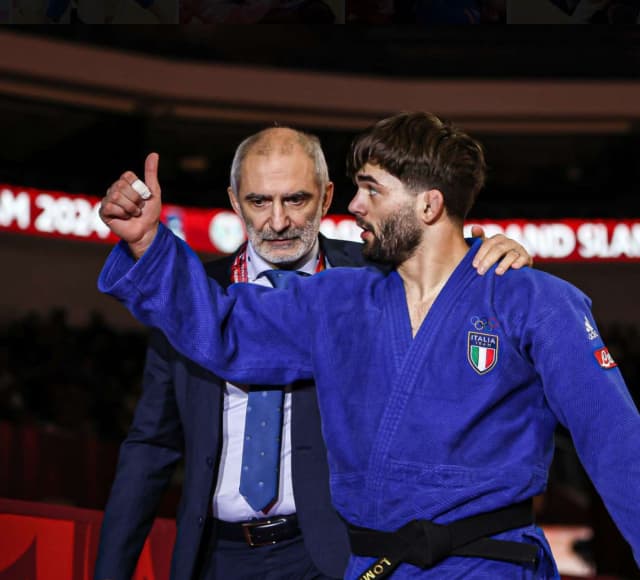As the Paris 2024 Olympic Games is fast approaching, every judoka on the circuit is dreaming of giving their best on the grand stage and some of the gold medallists from day two of the IJF Tashkent Grand Slam 2024 took us through their plans for the next few months.
For Clarisse Agbegnenou (FRA), the Tokyo 2020 winner in the -63 kg category, fine tuning her ne-waza was the main focus before coming to Uzbekistan. “In the weeks after Paris (grand slam), it was terrible. I was really tired but I rested and worked on some techniques, especially in ne-waza. I had a million arm locks but couldn't make them work. So I needed to work on it and I made it work today,” she told JudoTV’s Golden Score hosts.
Gearing up for a long training camp in Japan before the World Championships in Abu Dhabi in May, the 31-year-old is targeting an historic repeat of the Olympic and world titles she won in 2021.
Meanwhile, Manuel Lombardo (ITA), the -73 kg winner in Tashkent, said a change in diet may have helped him. The world silver medallist joked about missing pizzas but he was happy to take the gold. However, maintaining the tone of Agbegnenou, Lombardo was quick to point out what he is lacking.
“It’s the first time I have been following a diet. After Paris, they sent me to a nutritionist. So it's been two weeks since I've eaten only Greek yoghurt! The final was very tough. I was not comfortable with some grips and I have something to work on when I go back home. I am happy for the gold medal but there is lots to work on. If I want to keep winning, I have to work on the grips,” Lombardo said.
Not many judoka can say they are as consistent as Matthias Casse (BEL). The -81 kg star is in a comfortable position as far as the Games is concerned, having collected the necessary ranking points but even for a man of his calibre, innovation is the key, in his own words. Using the grand slams to try new techniques so he can avoid making mistakes when it matters is his way of going about it.
“Everyone knows me by now. It’s important to keep innovating and add new things to your judo, otherwise you’re very predictable and once you’re at the top of the rankings, everyone is watching you. I also watch the other guys. We train so much and we are doing judo all the time,” the Belgian commented.
The sacrifices and work put in during training, have been spoken about at the start. What actually stood out during these conversations was the humble and grounded nature of these elite athletes. Moments after winning a prestigious title, they have already set their next target, accepted their flaws and stressed the need to work on them. This is the true mark of a champion.



